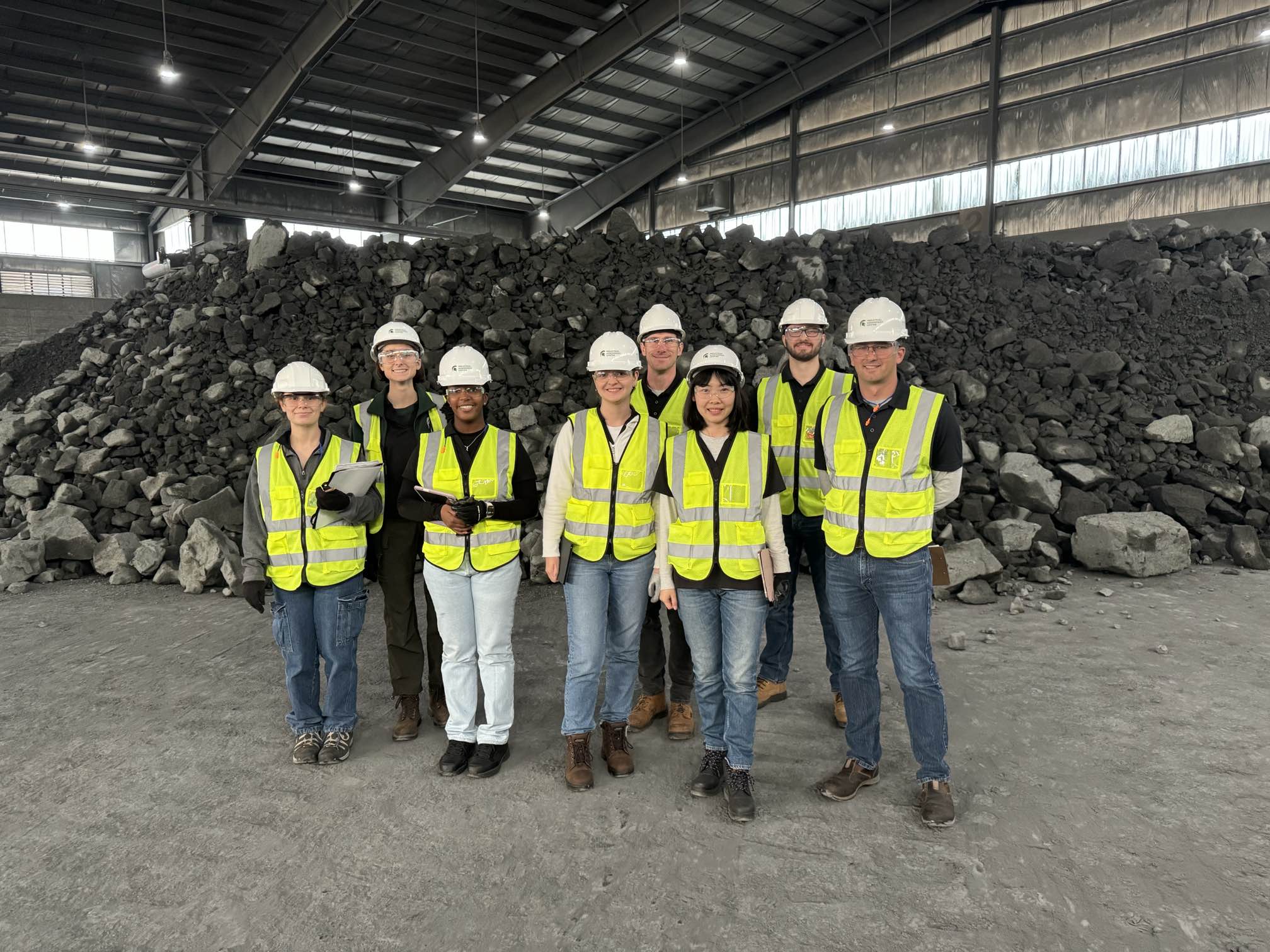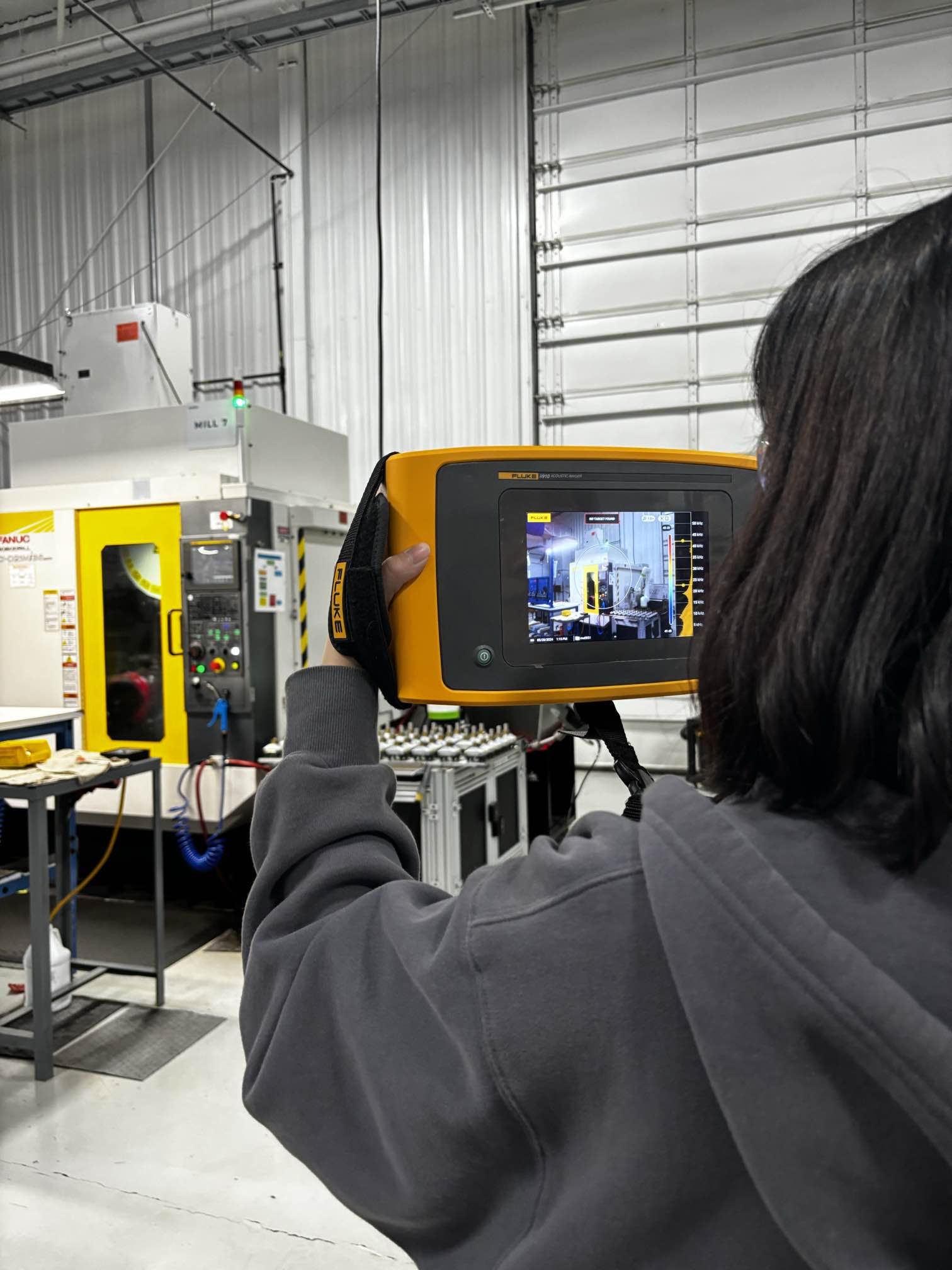The Michigan State University Industrial Assessment Center (IAC) has received another $5 million in its work to make manufacturing and commercial operations more sustainable throughout Michigan and the broader United States.
Funded by the U.S. Department of Energy (DOE) Office of Manufacturing and Energy Supply Chains (MESC), it extends the efforts of the MSU IAC that began in 2021 to help companies, community colleges, trade schools and unions save money, improve energy efficiency, and shrink carbon footprints through cross-network support. There is also a focus on building the energy and manufacturing workforce through hands-on training and student-led assessments.

MSU IAC Director Kristen Cetin, associate professor of civil and environmental engineering (CEE), said the $5 million is an important expansion of the current IAC program on campus and nationally. It builds on the strengths of the MSU IAC, and its key collaborator, the Michigan AFL-CIO Workforce Development Institute (WDI).
The MSU IAC will leverage its expertise in starting and operating as an IAC, working with more than 70 manufacturers in the past 2.5 years and collaborating with community colleges and high schools. WDI will utilize its expertise in registered apprenticeship, apprenticeship readiness, unions and Joint Apprenticeship Training Centers, and workforce development to inform the project efforts, she said.
Collaborators at MSU also include CEE Associate Professor Annick Anctil, Assistant Professor George Berghorn of construction management in the School of Planning, Design and Construction, and Ryan Gallagher in Infrastructure Planning and Facilities Project Services.
“We will be leading efforts that work directly with community colleges, trades schools, and union training programs throughout the country to build their IAC programs, supporting both significant growth in energy and manufacturing workforce development, while also supporting advancements in manufacturing decarbonization,” Cetin said. “MSU will provide technical assistance and foster collaboration across and beyond the existing IAC network, leading to a broad range of educational programs that provide an energy and manufacturing workforce pipeline that will strengthen U.S. manufacturing.”

“This grant also includes a specific focus on reaching disadvantaged communities through increasing the diversity of this workforce pipeline, and the competitiveness and efficiency of small and medium businesses located in disadvantaged communities,” Cetin explained.
This complements the MSU IAC’s recent $900,000 Building Training and Assessment Center (BTAC) grant that works with the Lansing School District Career and Technical Education (CTE), Lansing Community College (LCC), and Michigan Community Action and Economic Opportunity, to create a model educational training framework for training energy efficiency professionals in Justice40 communities, she added.
MSU’s $5 million is part of $16 million the DOE MESC is investing to increase coordination between IACs and similar programs, mentoring and training staff, and expanding outreach with small- and medium-sized manufacturers.
Along with MSU, Houston Advanced Research Center received $2.7 million to build an online platform to connect manufacturers and technical subject matter experts while providing more events and outreach and cross-network integration. Rutgers Center for Advanced Energy Systems received $8 million to continue to promote technical excellence and data collection for centers located at institutions of higher education while providing updates to the IAC infrastructure, such as tracking onsite power recommendations.
These opportunities are managed by ENERGYWERX in partnership with DOE, a collaboration made possible through an innovative Partnership Intermediary Agreement (PIA) set up by the DOE's Office of Technology Transitions (OTT). This agreement enables ENERGYWERX to broaden DOE’s engagement with innovative organizations and non-traditional partners, facilitating the rapid development, scaling, and deployment of clean energy solutions.
For more information, read about the MESC mission and IAC Program.
MSU College of Engineering Media and Public Relations page